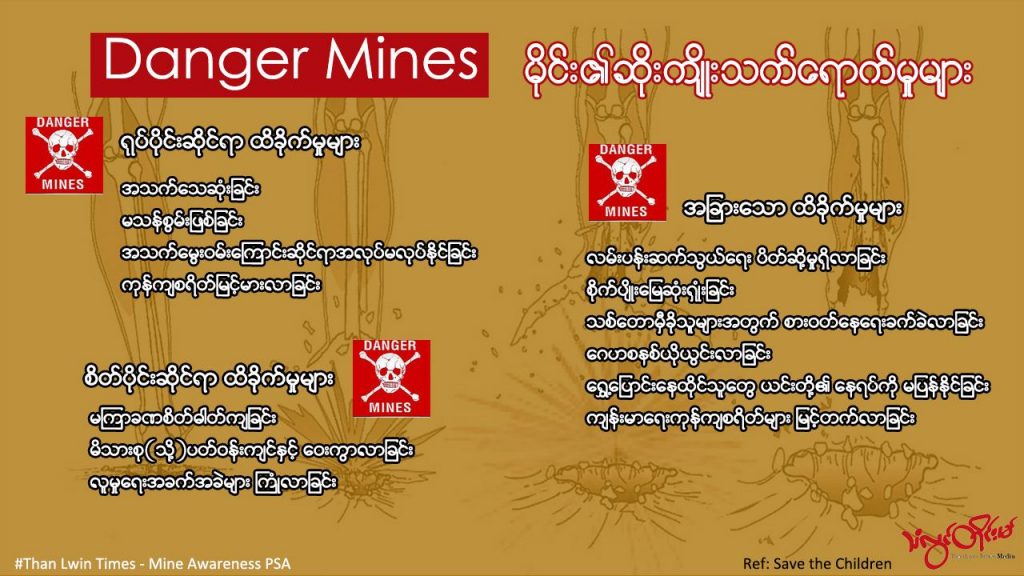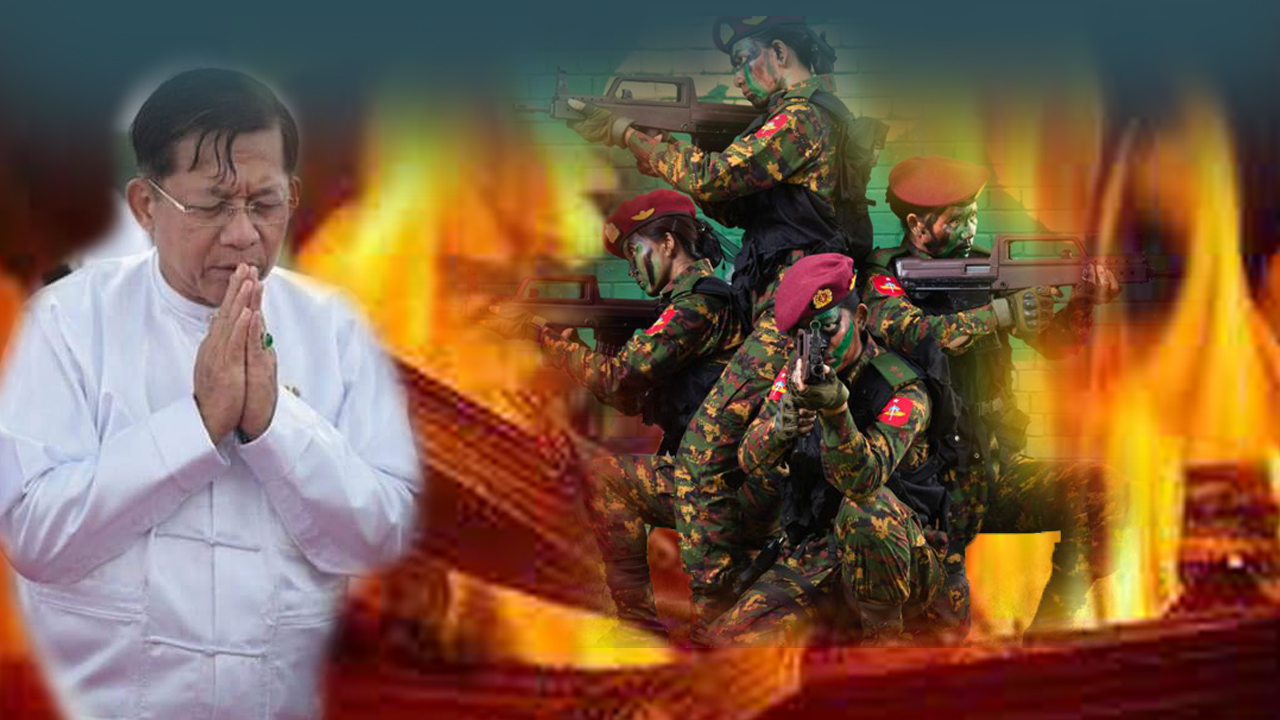Nay Pyi Taw, February (14)
Military leader General Min Aung Hlaing has admitted that although efforts have been made to end internal armed conflicts and achieve lasting peace, there is still a long way from stability and peace.
The military leader stated in his 76th Union Day message that 2022 has been designated as the year of peace, and that efforts have been made to build lasting peace by meeting and discussing with ethnic armed groups.
However, due to internal and external interference and the needs of those concerned who will work for the benefit of the country and the people, the military leader said that the country is still far away from stability and peace.
Col. Saw Kyaw Nyunt, spokesperson of the Peace Process Steering Team (PPST) of the seven NCA-signatories that held peace talks with the Military Council, told Than Lwin Times that although the peace talks in 2022 were not remarkable, they have consistently worked to find a political solution through dialogue.

Colonel Saw Kyaw Nyunt added that since all forces are already united to build union peace and a federal democratic union, they will continue to make efforts as much as possible despite the difficulties.
The Peace Process Steering Team (PPST) steering committee stated in the Union Day message that the peace process and the political dialogue, which were beginning to gain momentum, were halted due to the 2021 coup, and as a result of the coup, the country is heading towards a new form of broader civil war.
In late April of last year, the military leader began inviting EAOs to peace talks, and seven NCA-signatory EAOs and three non-NCA-signatory EAOs attended the military council’s peace talks three times.
U Than Soe Naing, a political analyst, said that in 2022, the military leader did not try to achieve peace and only held talks with some ethnic armed groups that did not engage in the conflict, and committed violence against the opposition forces and the people.
Currently, there is an ongoing conflict between the regime troops and resistance forces – Karen National Union (KNU), Kachin Independence Organization (KIO), All Burma Students’ Democratic Front (ABSDF), Chin National Front (CNF) and Karenni National Progressive Party (KNPP) as well as the People’s Defense Forces (PDF).
ISP-Myanmar, a research organization, estimates that more than 8,000 fights occurred in at least 190 townships over the course of the two years following the military takeover, with the regime forces and the ethnic armed forces engaging in more than half of them.
News-Than Lwin Times

